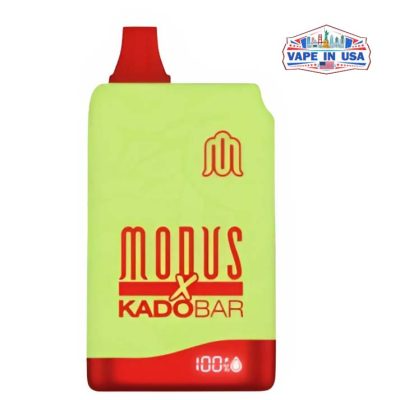Barn conversions have become increasingly popular as homeowners seek unique living spaces that blend rustic charm with modern functionality. Whether you’re looking at barn conversions in Bournemouth or exploring options elsewhere, these projects offer exceptional opportunities to create distinctive homes while preserving architectural heritage.
The growing demand for Barn Conversions in Bournemouth reflects a broader trend toward sustainable development and creative reuse of existing structures. These conversions not only provide spacious living areas but also contribute to rural regeneration and environmental conservation by giving new life to traditional agricultural buildings.
What Are the Main Types of Barn Conversions Available?
Traditional barn conversions typically fall into several categories, each offering unique advantages for different lifestyles and budgets. Understanding these options helps you make informed decisions about your conversion project.
Residential barn conversions represent the most common type, transforming agricultural buildings into family homes. These projects often feature open-plan living areas, exposed beams, and large windows that maximize natural light while maintaining the building’s original character. The spacious interiors provide flexibility for modern living arrangements.
- Stone barns offer excellent insulation properties and timeless aesthetic appeal
- Timber-framed barns provide authentic rustic charm with exposed structural elements
- Modern steel-frame barns allow for contemporary design interventions
- Historic barns may qualify for heritage grants and tax incentives
How Much Do Barn Conversions Typically Cost?
Barn conversion costs vary significantly based on size, condition, location, and desired finish quality. Understanding these factors helps you budget effectively for your project and avoid unexpected expenses during construction.
Basic barn conversions typically start around £150-200 per square foot, while high-end conversions can reach £300-400 per square foot. These figures include structural work, insulation, utilities installation, and basic interior finishes. Additional costs may include planning applications, building regulations approval, and specialized consultancy fees.
The location significantly impacts overall costs, with barn conversions in Bournemouth potentially commanding premium prices due to local market conditions and proximity to amenities. Site access, utility connections, and local labor costs all influence the final project budget. Builder Bournemouth professionals can provide detailed cost breakdowns based on specific project requirements.
What Planning Permission Is Required for Barn Conversions?
Planning permission requirements for barn conversions depend on various factors including building age, location, and proposed use. Understanding these regulations ensures your project complies with local planning policies and avoids costly delays.
Most barn conversions require full planning permission, though some may qualify for permitted development rights under Class Q regulations. These rights allow conversion of agricultural buildings to residential use without formal planning application, subject to specific criteria and prior approval requirements.
- Agricultural buildings must be structurally sound and suitable for conversion
- Conversions cannot exceed 450 square meters of floor space
- Buildings must have been in agricultural use for at least 10 years
- Development must not require extensive structural alterations
Local planning authorities may impose additional restrictions, particularly in conservation areas or Areas of Outstanding Natural Beauty. Early consultation with planning officers helps identify potential issues and streamline the approval process.
Which Structural Challenges Do Barn Conversions Face?
Barn conversions present unique structural challenges that require careful assessment and expert solutions. Addressing these issues early prevents costly problems during construction and ensures long-term building performance.
Foundation issues commonly affect older barns, as agricultural buildings often have minimal foundations compared to residential structures. Upgrading foundations may require underpinning or complete replacement, depending on soil conditions and structural loads. Professional structural engineers assess these requirements and design appropriate solutions.
Insulation represents another significant challenge, as traditional barn construction prioritizes ventilation over thermal performance. Modern insulation systems must balance energy efficiency with moisture management to prevent condensation and structural damage. Breathable insulation materials often work best with traditional construction methods.
- Roof structures may require strengthening to support additional loads
- Wall insulation systems must accommodate thermal bridging through structural elements
- Damp-proofing systems protect against ground moisture and weather penetration
- Window and door openings may need structural reinforcement
How Do You Design Modern Interiors in Historic Barns?
Creating contemporary living spaces within historic barn structures requires careful balance between modern comfort and architectural authenticity. Successful designs celebrate original features while incorporating necessary modern amenities.
Open-plan layouts work particularly well in barn conversions, taking advantage of the naturally spacious interiors and high ceilings. Mezzanine levels can create additional floor space without compromising the dramatic vertical proportions that make barns so appealing. Strategic placement of new walls defines functional areas while maintaining visual connections throughout the space.
Original features like exposed beams, stone walls, and large timber trusses become focal points in the interior design. Modern interventions should complement rather than compete with these elements. Contemporary materials like steel, glass, and concrete can create striking contrasts when used sensitively. Builder Bournemouth specialists understand how to integrate modern systems while preserving historic character.
What Are the Best Heating Solutions for Barn Conversions?
Heating large, high-ceilinged spaces efficiently requires careful consideration of system types and zoning strategies. The right heating solution balances comfort, efficiency, and running costs while working with the building’s unique characteristics.
Underfloor heating systems work exceptionally well in barn conversions, providing even heat distribution across large floor areas. These systems operate at lower temperatures than traditional radiators, making them ideal for use with renewable energy sources like air source heat pumps or ground source heat pumps.
Zoned heating systems allow different areas to be heated independently, improving efficiency and comfort. Open-plan areas benefit from thermostatic controls that respond to occupancy patterns and usage requirements. Wood-burning stoves or multi-fuel stoves can provide supplementary heating while adding to the rustic atmosphere.
- Air source heat pumps offer efficient heating with minimal visual impact
- Biomass boilers suit rural locations with good fuel supply access
- Solar thermal systems can supplement hot water heating requirements
- Smart heating controls optimize system performance and reduce energy costs
Why Choose Professional Barn Conversion Services?
Professional barn conversion services ensure projects meet building regulations, planning requirements, and quality standards while managing complex construction challenges. Experienced contractors understand the unique aspects of barn conversions and can navigate potential pitfalls.
Specialist barn conversion contractors bring valuable expertise in dealing with historic buildings, planning authorities, and building control departments. They understand the importance of preserving architectural heritage while creating functional modern homes. This knowledge helps avoid costly mistakes and ensures projects progress smoothly from conception to completion.
Working with established professionals like Builder Bournemouth provides access to skilled tradespeople, reliable suppliers, and proven project management systems. These partnerships often result in better value, shorter timescales, and higher quality outcomes compared to attempting conversions without professional support.











Leave a Reply